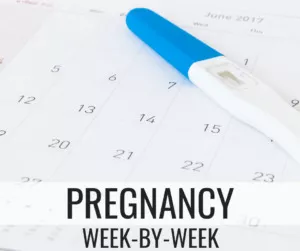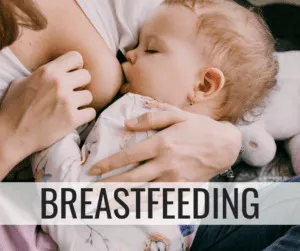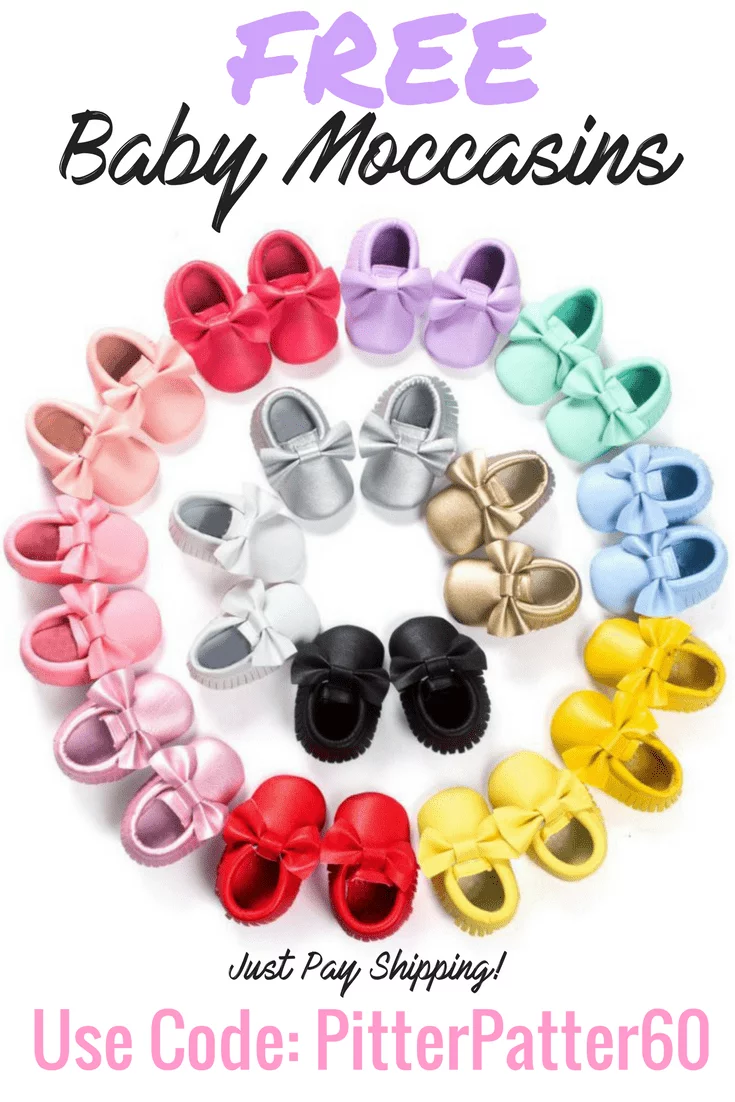5 Ways to Relieve Constipation in Babies
One thing that we, as parents, tend to obsess about after having a baby, is poop!
For good reason, too. Having a baby with tummy issues, whether gas, constipation, or colic, is something we hope to never have to experience.
But, more than likely, at some point your baby will have one of these three issues; their digestive system isn’t completely mature when born.
And sure, it may not be the most glamorous thing to be obsessed with; and who knew that you’d spend the first year worrying so much about your little ones digestive system and how well it’s doing its job.
But, there is a good reason we’re obsessed with this bodily function. No one likes to have an upset belly!
It’s tough enough to have to deal with constipation as an adult; it’s even worse when your child has it. All you want to do is help them get through it as quickly as possible, and then help them avoid it altogether in the future.
How To Recognize Constipation In Babies
Before we can help our babies with their tummy problems, and help get their bowel movement to move, we must first be able to recognize when they are constipated.
Many of the signs are obvious, and can be the same signs for anyone else who is constipated. These signs may include, but are not limited to:
- Poops that are not soft, or are much drier than usual
- If they have not had a bowel movement in awhile (length between bowel movements will differ, baby to baby, and it’s best to talk to the pediatrician about how often yourbaby should have bowel movements)
- Your baby seems to be in pain when trying to make a bowel movement
- Irritability
- Or, if your baby has a hard belly
The best way to tell is by looking at the consistency of what’s in the diaper and whether or not their belly is hard belly before they go.
After having three kids, if my infant has a hard belly it’s now an instinct to start trying to relieve them of the pain they may be in when constipated and help them get their poop out.
Infrequent Bowel Movements Doesn’t Always Mean Constipation
Many parents worry when their baby hasn’t pooped at all in a single day or in two or three days. Lucky for you, this worrying isn’t always necessary. How often they go depends on many things, from what they are eating or drinking, to how old they are.
For example, my youngest child is two months old and is exclusively breastfed. She does not poop everyday, it’s more like every couple of days, and it’s almost like mustard when I change her diapers; both in color and consistency.
Your baby’s diapers and how often they go may be different when not constipated. It depends a lot on their diet, your diet if breastfeeding, and how old they are. And, of course, if they are in a stage when they are trying new foods all the time; what’s in their diapers, and how often they go, may change based on that. This is why the density of their poop is a better way to tell if they are constipated than the frequency.
Don’t worry, if they end up being constipated, there are many ways to help relieve their constipation. Which is a good thing, because not all babies will be relieved of their constipation and tummy issues in the same way.
Help Them Exercise Their Legs
When you believe your baby is constipated, one of the easiest things to help relieve their constipation is by helping them exercise their legs.
You can do this by gently moving one of their legs up towards their belly, and then moving the other leg towardstheir belly while moving the first one away from their belly. Such as if they are doing a bicycle exercise move.
This will put pressure on their belly and help move the bowel movement down. This is the first thing I do with my babies when I suspect any constipation. It was also the first thing my mom would always do with any infant in her care that she suspected was a little constipated, and she ran a home daycare for several years.
You can also help your baby do a variation of this exercise by bringing both their legs up at the same time, and gently massaging their belly with their legs.
Belly Massage
If exercising your baby’s legs doesn’t help, and they still seem like they are in distress and constipated; try massaging their belly with your fingers or hand.
Some parents may seem like naturals when massaging their baby’s belly, knowing how much pressure should be given and knowing exactly what to do. These are usually second of third time parents who have done this all before!
If you’re a first time parent, or need a refresher on how to massage your baby’s belly, that’s alright. Start gentle and with one to two fingers, massaging in a clockwise position. You can place a little more pressure on your little ones belly, as if trying to massage the poop right out of them. But, be mindful of how much pressure, especially with newborns, as they are more delicate.
Also, be sure your hands are warm, void of any jewelry, and consider using baby lotion. The lotion won’t only help you massage your baby, it also smells amazing!
Give Them A Warm Bath
Giving your baby a warm bath, like a massage, will also help them have a bowel movement, hopefully not while they are in the tub, but soon after!
The goal is to help your baby relax so the muscles in their digestive system can relax and pass the bowel movement more easily. A warm bath should help them relax, and help them stop straining to push their poop out. This way, it will come out using the muscle contractions in their intestines, without pushing, or at least without pushing so hard. Which is great because that means less stress on your little one.
A nice baby massage after their warm bath, using great smelling baby lotion, wouldn’t be a bad idea, either!
Does Your Baby Get Constipated Often?
The three ideas above to relieve your baby of constipation will help if your baby is already constipated. Plus, there’s no harm in using those methods even if you’re not sure whether your baby is constipated or not.
Many parents will think their baby is constipated when they haven’t pooped in a day or two, or you could be in the daze of having a newborn and think they are constipated when they are not.
Don’t worry, I had the same worry with all my newborns, especially since I remember the nurses at the hospital telling me exactly how many pee and poop diapers my newborn shouldhave each day for the first ten or so days.
But, if your baby is truly constipated often, there may be another issue at hand. At this point, you should take action to prevent constipation, rather than just try to relieve it.
If Breastfeeding, Change YOUR Diet
There’s not much worse than a constipated baby who also has colic!
You want to ease their pain, and cry right along with them. Unfortunately, I know just what this is like, and I am sorry if you are going through this right now. Just know that you are a wonderful parent and you are not doing anything wrong.
However, there may be a way that helps relieve both colic and constipation at the same time! All babies are different though, so don’t be too disappointed if this method doesn’t work.
My first child had colic and was constipated often when she was a newborn. I still remember it like it was yesterday, and when she did poop, the smell was the worst thing I had ever smelled. Then, I cut dairy out of my diet.
I had ingrained in my brain. from when I was younger, that cheese and other dairy products are binding, or in other words, makes it harder to poop and can cause constipation. Since I was breastfeeding, I figured I’d try it, I didn’t want what I was eating to upset my breastfed baby. And, honestly, I was quite desperate to ease her pain and would do almost anything to have her get rid of her colic.
It worked! She stopped being so constipated, and she didn’t cry for hours on end without being able to be consoled.
Dairy can be the cause of constipation or tummy issues in babies, or anyone for that matter, especially if there is an undetected milk allergy. Babies digestive systems aren’t completely mature when they are born, so dairy is even tougher on their bellies.
If removing dairy from your diet for a couple of weeks doesn’t relieve your baby of constipation, it could be another food in your diet. Be sure to talk with your child’s pediatrician for more ideas on what you can do to prevent constipation if your infant is exclusively breastfed.
Change Your Baby’s Diet
Whether your baby is formula fed, has started eating baby food, or if you have started baby led weaning; it could very well be what theyare eating that is causing them to be constipated.
To go along the same lines as removing dairy from a mother’s diet who is breastfeeding, consider switching them to a dairy free formula. But, before switching formulas, be sure to talk to your infant’s doctor to be sure they are still getting all the nutrition they need from the formula you switch them to.
If they have started eating solids, pay attention to what they eat before becoming constipated and see if removing that food gets rid of constipation. You may have heard that you should have your baby try one new food at a time; to test each food with your baby’s digestion to see how they react to it, this would be one reason why.
Constipation, or other tummy issues, could also be caused by giving your baby anything other than breastmilk or formula too soon.
Some older generations may suggest you mix some baby cereal in with breastmilk or formula when your infant is only a couple months old, to help them sleep better at night. Please, don’t listen to this advice, there’s a good chance your infants belly is not ready for baby cereal at two months old. The recommended age to start a baby on baby cereal or pureed fruits and veggies is three or four months, no sooner.
I hope, for yours and your baby’s sake, that if you follow the suggestions above, that your baby’s constipation will be relieved after not too long. If none of these suggestions resolve your infant’s issue, be sure to tell their doctor and see if they have any other suggestions, or to see what the next step would be in helping relieve your infant of their constipation.
Meet The Author:

Shawna is a work at home mom with three little girls, including a newborn, and is a bit of a health nut. She enjoys making new recipes with her older children (currently 3 and 6 years old) and writing. She writes on her blog, Stress Less Be Healthy, in hopes to help other moms raise healthy kids, by providing healthy and simple recipes, ways to help children (and themselves) eat better, and ways to help moms stay sane as a stay at home mom!










